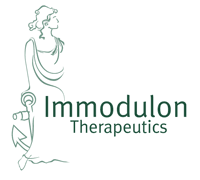Author Interviews, Cost of Health Care, Immunotherapy, Melanoma, Pharmacology / 22.12.2016
Pembrolizumab Found to Be Cost-Effective in Advanced Melanoma
MedicalResearch.com Interview with:
Herbert H F Loong
MBBS(HK), PDipMDPath(HK), MRCP(UK), FHKCP, FHKAM(Medicine)
Specialist in Medical Oncology
Clinical Assistant Professor, Department of Clinical Oncology
Deputy Medical Director, Phase 1 Clinical Trials Centre
The Chinese University of Hong Kong
Prince of Wales Hospital
Hong Kong SAR
MedicalResearch.com: What is the background for this study?
Response: Advanced melanoma have previously been known to be a disease with a dismal prognosis. Over the last few years, clinical trials data and real-world clinical experience of checkpoint inhibitors have significantly changed the treatment landscape for advanced melanoma patients. This was first demonstrated with the Anti-CTLA4 Ab Ipilimumab, and more recently with the Anti-PD1 Ab pembrolizumab. Whilst we have seen dramatic improvements in disease control with the use of these agents, the high costs of these drugs may be prohibitive to the average patient who has to pay out-of-pocket and potentially may place significant burdens on healthcare systems. There is a need to rationally assess the cost-effectiveness of these new agents, specifically addressing the potential benefits to the individual patient and to society, whilst balancing the costs that such a treatment may entail.
The assessment of cost-effectiveness of a particular treatment is extremely important in Hong Kong, as this has direct implications on drug reimbursement and accessibility of the particular drug in question at public hospitals in Hong Kong. The aim of the study is to assess the cost-effectiveness of pembrolizumab in patients with advanced melanoma used in the first-line setting in Hong Kong, and comparing it to (1) ipilimumab and (2) cytotoxic chemotherapy. Cytotoxic chemotherapy chosen for comparison were drugs commonly used in the first line setting in Hong Kong, which included dacarbazine, temozolomide and carboplatin+paclitaxel combination. It is important to note that whilst ipilimumab is registered for this indication in Hong Kong, there is no reimbursement of this drug by the Hospital Authority in Hong Kong and patients have to pay out-of-pocket. The cost of ipilimumab and the associated side effects has been prohibitive to most advanced melanoma patients in the public setting.
(more…)


